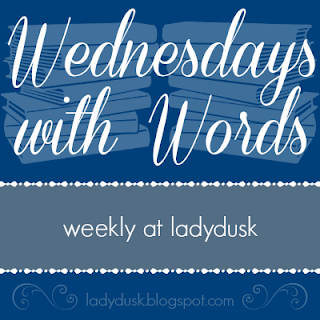If you have not yet read this fantastic article on narration, you should. Go do it. Now. J
I read this article a couple weeks ago. After I did, I read all of the linked Parent's Review Articles, and made several pages of notes – tips, ideas, quotes. Those articles are a treasure trove. I came away with a fresh understanding of what narration really is and why we do it. That's really where it all starts. Once you understand the 'what' and the 'why', it makes it easier to put it into practice in an appropriate way, and to help your students grow in a way that doesn't interfere with the process.
This week I'm sharing some of the quotes I noted from that exercise.
"The less the teacher talks the more the class will have to think."
Narration "properly dealt with leads to mental transfiguration."
"We narrate and then we know."
"[Narration] is not to tell you what you know already or even to find out what they know, but to help them to remember."
"…narration…is founded on this power of mind to recall knowledge gained from a single reading or seeing or doing and the fact that such recollection makes so deep an impression on the mind that it remains for a long time and is never entirely lost."
"Such co-ordination grows from remembered past narrations over a wide field. Some note in today's reading awakes an echo in some other subject or lesson so the power to compare and contrast and illustrate by example is developed. This should lead to a valuable use of analogy, and application of past history to modern times and modern problems." (
Oo..that's just what I was talking about the other day….)
"What a child digs for is his own possession; what is poured into his ear, like the idle song of a pleasant singer, floats out as lightly as it came in, and is rarely assimilated."
~Charlotte Mason , School Education, p. 177
"…in the act of narrating every power of his mind comes in to play, that points and bearings which he had not observed are brought out, that the whole is visualized and brought into relief in an extraordinary way; in fact, that scene or argument has become part of his personal experience; he knows, he has assimilated what he has read. This not memory work."
~Charlotte Mason, A Philosophy of Education, p. 16
My Bookbag This Week:
Devotional: Easter Devotions in Living the Christian Year (Gross), The Christian Life: A Doctrinal Introduction (Ferguson)
Theological or Christian Living: The Story of Christianity, Volume 1 (Gonzales)
Book Discussion Group Titles: Watership Down (Adams), Macbeth (Shakespeare)
Book Discussion Group Titles: Watership Down (Adams), Macbeth (Shakespeare)
'Great Book': Inferno (Dante)
On Education: How to Read a Book (Adler), A Philosophy of Education (Mason)
Topic of Special Interest: The New World (Churchill)
Read-Alouds with the Children: On the Banks of Plum Creek (Wilder), The Magician's Nephew (Lewis), Eric Liddell: Something Greater Than Gold (Benge)
On the Back Burner: Nicholas Nickelby (Dickens)
Click Here for more Words

Oh, I need to read this. Thank you!
ReplyDelete